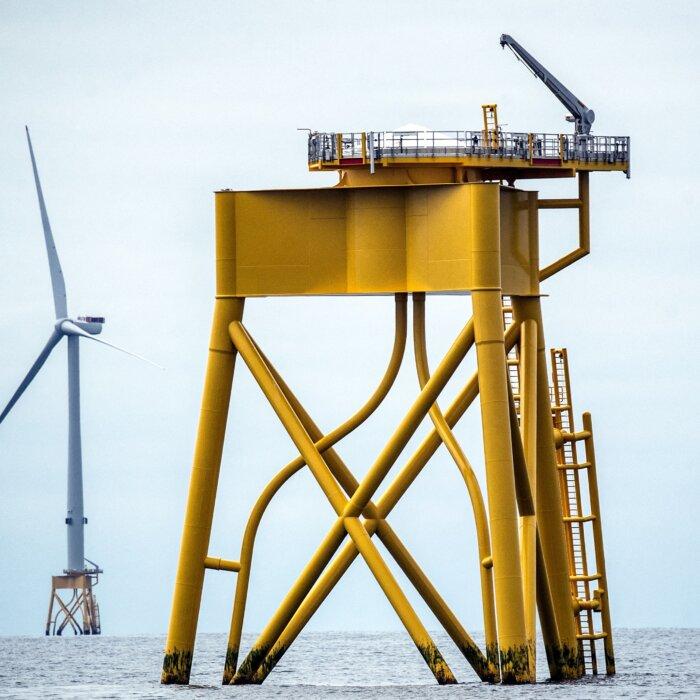The government has rejected recommendations to develop a frequent flyer tax to reduce demand for air travel if net zero targets for reducing aviation emissions are not met.
In December, the Environmental Audit Committee (EAC) recommended that if technological measures do not deliver on predicted emissions reductions, the government should reconsider “demand management measures” in aviation emissions policy, such as a “frequent flyer levy.”
A government spokesperson said on Wednesday that “reducing demand for flights is not government policy.” The spokesperson continued that the Jet Zero Strategy is “setting out an ambitious approach to achieving net zero aviation by 2050 without the government needing to limit aviation growth.”
‘Demand Management Measures’
The first review of the government’s Jet Zero Strategy framework—a plan for achieving net zero aviation by 2050—is due to take place in 2027. However, the EAC recommended that be brought forward to 2025 to determine whether the aviation sector remains on track to meet overall carbon targets.“In preparation for the outcome of that review, we recommend that the Government develop policy proposals on demand reduction, including consideration of greater use of digital technologies, reducing the cost of rail travel, and a frequent flyer levy, should these then be required,” the recommendations said.
The response said that according to analysis by the Department for Transport, “in all modelled scenarios we can achieve our net zero targets by focusing on new fuels and technology, rather than capping demand, with knock-on economic and social benefits.”
An ‘Equitable’ Distribution of Air Miles
The EAC, which monitors the progress of government departments and public bodies in contributing to sustainable development, appears to have taken on the advice of environmental charities in its recommendation of the frequent flyer tax.The committee cited written evidence from climate charity Possible, which developed a proposal for such a levy. Possible explained it as a “progressive tax” that increases per flight someone takes or per mile they fly a year. This would replace air passenger duty and “discourage” frequent flying.
Possible also said the tax would help achieve a more “equitable” distribution of air miles by decreasing “existing high levels of inequality in access to flights.”
Likewise, the Campaign for Better Transport said in written evidence that it backed a frequent flyer levy, as well as proposing a ban on internal UK flights where an equivalent journey by rail would take less than five hours.
Net Zero Goals
Elsewhere in the government’s response, ministers agreed with the EAC’s recommendation to commission and support research into the “total environmental effects” of aviation, “with a view to incorporating the emerging consensus into all future iterations of its strategy for net zero aviation.”Ministers agreed to commission research into the impact on aviation’s non-carbon dioxide emissions, how they interact with climate over time, and how to mitigate that impact.
Further, ministers said it would include international aviation and shipping emissions in the Sixth Carbon Budget.
“This change allows for them to be accounted for consistently with other emissions as we approach our whole-economy net zero target for 2050,” the government said, adding that it would legislate for its inclusion “at the earliest opportunity, subject to parliamentary scheduling.”
EAC member Jerome Mayhew, the Conservative MP for Broadland, said: “Decarbonising the aviation industry has proved difficult, but it is a critical part of the UK’s pathway to net zero.
“There is considerable energy and ambition within the aviation sector to deliver the necessary reductions in emissions.”
Mr. Mayhew added that while he welcomed the ambitions of his government, that needs to be translated “into actual results.”
“If a future review of the Jet Zero Strategy, which the committee recommended takes place by 2025, reveals that sufficient progress is not being made, the government must not be afraid to alter course mid-flight to maintain progress towards our net zero goals,” he said.







